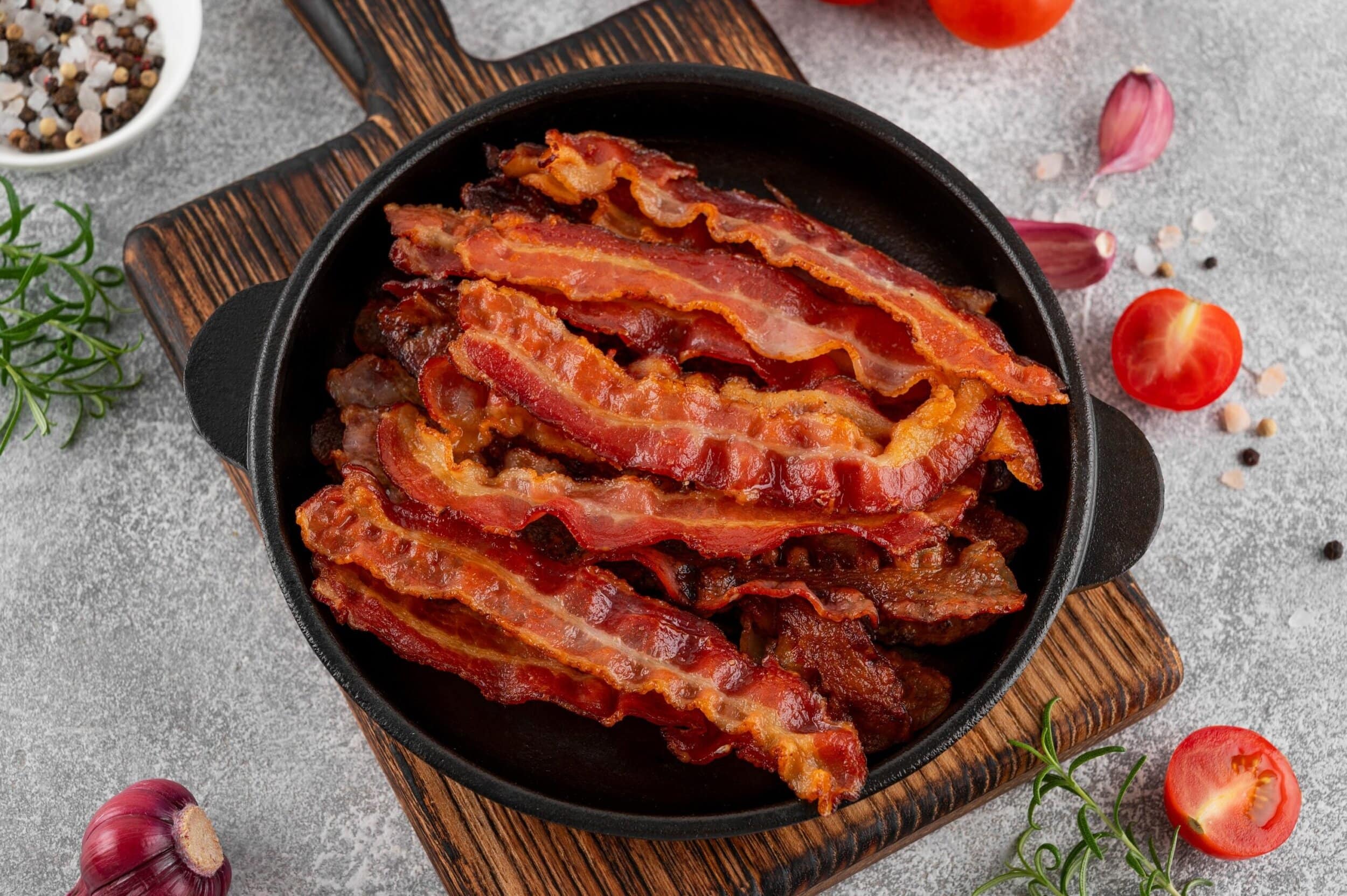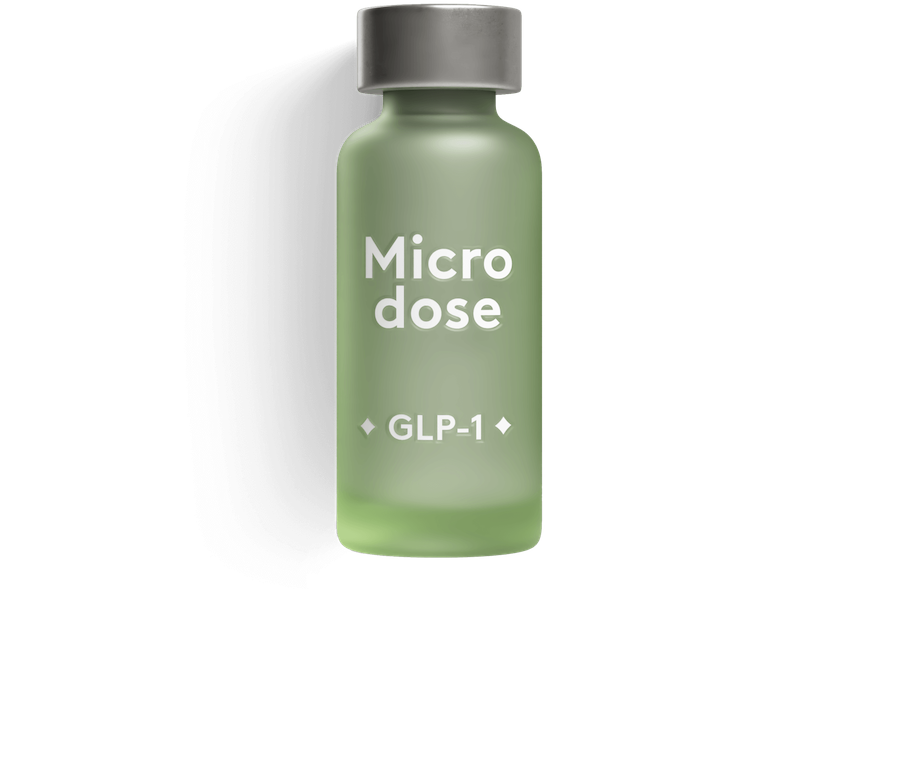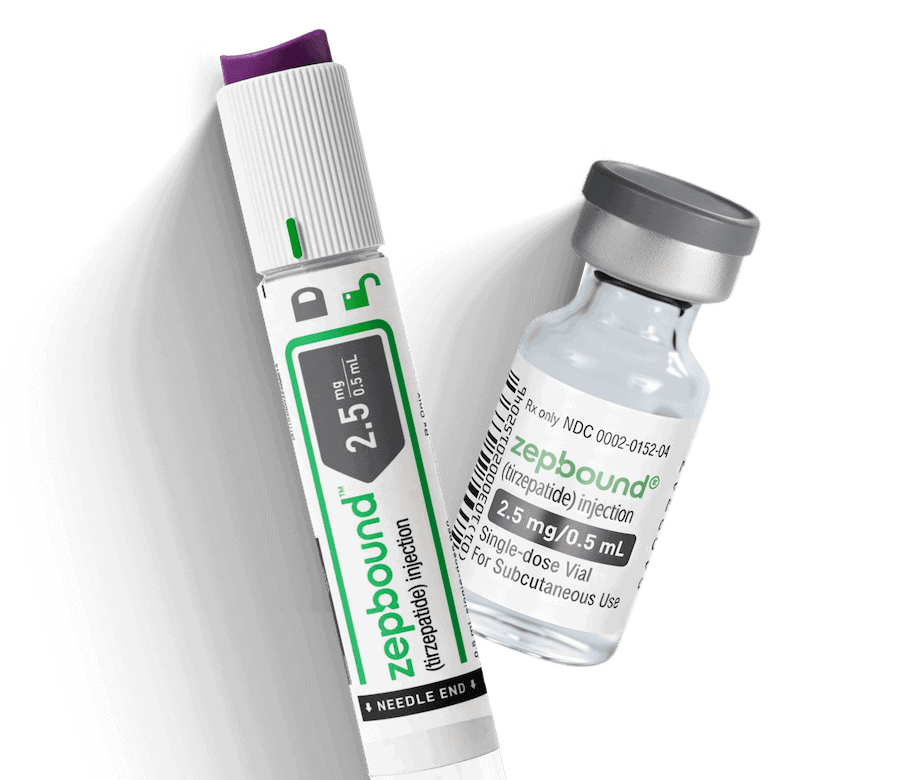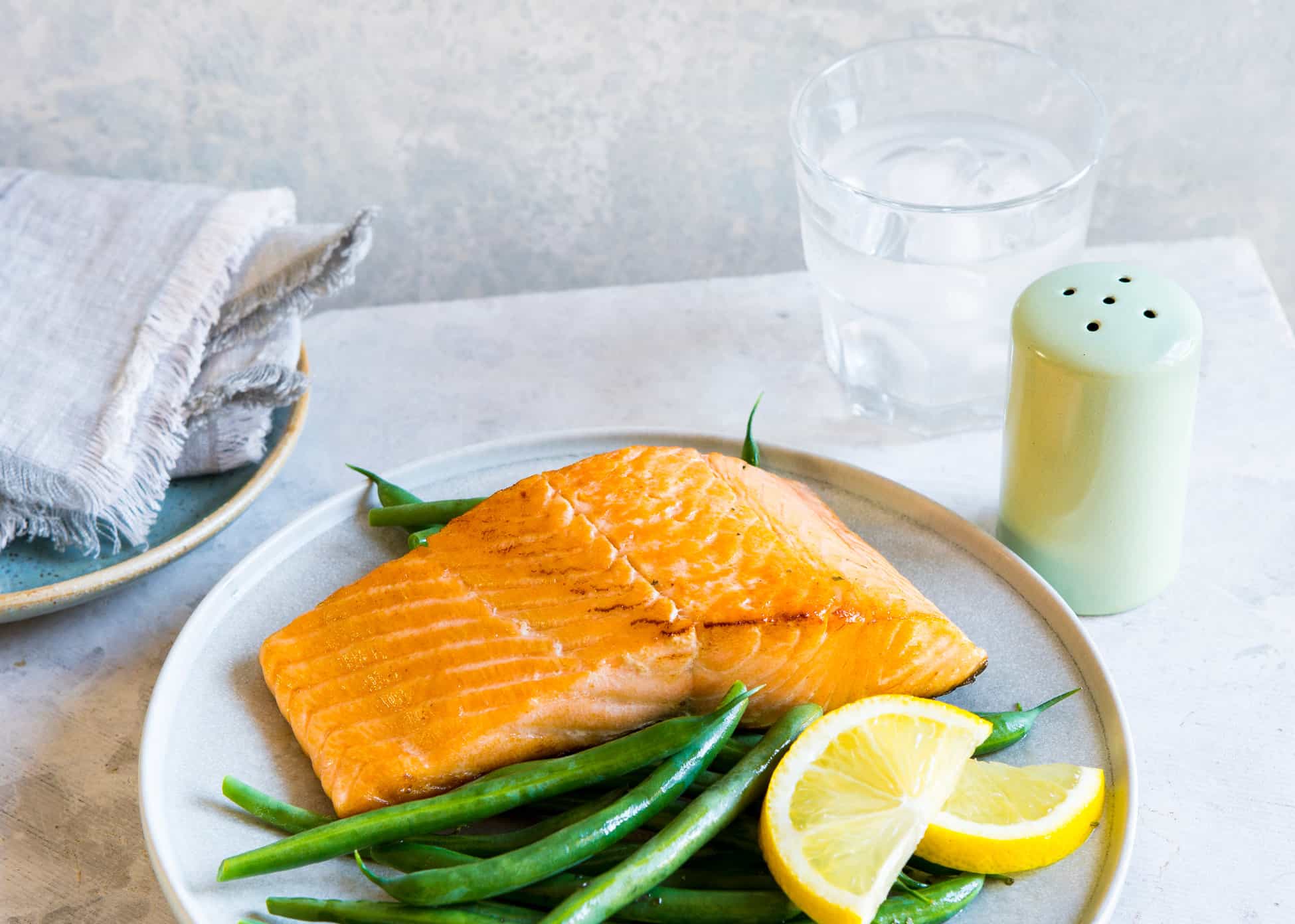The crispy, smoky, savory flavor of bacon has a way of turning a simple breakfast or everyday sandwich into something tasty. But if you’re trying to lose weight, you might be wondering whether bacon can still be a part of your day.
Here’s the thing: While bacon is considered a high-fat, processed food that you need to approach thoughtfully, small amounts are certainly still on the table. Two slices of bacon have about 100 calories and 5 to 6 grams of protein. Plus, its unique flavor can actually help keep you from feeling deprived. The key is sticking to a smaller serving size and eating it occasionally for health reasons.
✅ Quick answer
Yes, in moderation.
Rx weight-loss, the right way, with Noom
Get access to prescription weight loss medication with Noom.✅ Why bacon is good for weight loss
- It’s uniquely satisfying – Two slices of bacon have about 5 to 6 grams of protein, but that’s only part of the story. The mix of protein, fat, and that smoky, savory flavor can make a meal feel more complete.
- It’s low in carbs – With almost no carbohydrates, bacon won’t cause a quick rise and crash in blood sugar.
- It’s got a dash of B vitamins – Bacon brings a little B1, B3, and B12 to the table—nutrients that help your body turn food into fuel. It’s not a powerhouse source, but when combined with other nutrient-rich foods, it can help round out your daily mix.
⚠️ Things to be mindful of:
- It’s calorie-dense for its size – Two slices may not look like much, but they can add a surprising number of calories. That can make it easy to overshoot your daily target without feeling full.
- It’s high in saturated fat and sodium – Bacon’s rich flavor comes with a good dose of saturated fat (linked to higher LDL cholesterol and heart disease risk) and sodium, which can raise blood pressure and cause your body to hold onto extra water.
- It’s a processed meat – Eating processed meats like bacon too often has been linked to a higher risk of certain cancers, so it’s best to enjoy them in moderation as part of a balanced diet.
🥗 Nutrients in bacon (per 2 slices, 0.7 oz/20g)
| Nutrient | Amount | % RDA* |
|---|---|---|
| Calories | 108 calories | 5% |
| Protein | 7.4 g | 15% |
| Total carbs | 0.3 g | <1% |
| Fiber | 0 g | 0% |
| Sugars | 0 g | — |
| Total fat | 8.4 g | 11% |
| – Saturated fat | 2.9 g | 15% |
| – Monounsaturated fat | 3.8 g | — |
| – Polyunsaturated fat | 0.9 g | — |
| Omega-3 | 0.02 g | — |
| Omega-6 | 0.8 g | — |
Bacon doesn’t have to be off-limits. Two small slices have over 7 grams of protein—about 15% of your daily needs. It’s also very low in carbs, which is part of its appeal for keto and lower-carb eaters. On the flip side, those same two slices also bring about 108 calories and over 8 grams of fat, with nearly 3 grams coming from saturated fat. For perspective, most health guidelines suggest keeping saturated fat to about 13 grams or less per day, so a few extra slices can quickly use up a big chunk of that budget.
*Recommended dietary allowance (RDA) is defined as the average daily amount of nutrients needed to meet the requirements of nearly all healthy people in a specific group.
Sign up for Noom Digest!
Stay on top of your wellness journey with the latest Noom news, thoughtful articles, and a healthy dose of inspiration delivered right to your inbox.💊 Vitamins & minerals in bacon (per 2 slices, 0.7 oz/20g)
| Vitamin/Mineral | Amount | % RDA* |
|---|---|---|
| Niacin (B3) | 2.3 mg | 15% |
| Selenium | 7.7 μg | 14% |
| Phosphorus | 99 mg | 8% |
| Vitamin B12 | 0.23 μg | 9% |
| Thiamin (B1) | 0.10 mg | 9% |
| Zinc | 0.66 mg | 6% |
| Choline | 25 mg | 5% |
| Vitamin B6 | 0.07 mg | 4% |
| Potassium | 99 mg | 2% |
Bacon does bring some valuable micronutrients to the table. It’s a source of B vitamins, which help turn the food you eat into usable energy, and it offers selenium—a powerful antioxidant that supports immune health and helps protect your cells. You’ll also find phosphorus for bone strength and cell repair, and zinc for immunity and wound healing.
That said, these nutrients don’t just come from bacon—you can also get them from foods like poultry, fish, eggs, leafy greens, beans, nuts, seeds, and dairy, often with less saturated fat and sodium. Enjoying bacon in moderation while mixing in these other nutrient-rich foods can give you the best of both worlds.
🔍 Nutrient breakdown
Glycemic index (GI) of bacon
- Glycemic index: 0 (Low)
💡Tip: Foods with a glycemic index of zero don’t raise blood sugar levels, which helps prevent energy spikes and crashes that can trigger hunger and cravings.
Is bacon high in protein?
✔️ Yes: Bacon contains 7.4 g of protein per 2-slice serving, making it a concentrated protein source that can help maintain muscle mass during weight loss and promote feelings of fullness.
🔹 Better protein alternatives: Turkey bacon | chicken breast | eggs
Is bacon high in fiber?
❌ No: Bacon contains 0 g of fiber per serving. As an animal product, it provides no dietary fiber, which is essential for digestive health and prolonged satiety.
💡Tip: Pair your bacon with high-fiber foods like avocado, spinach, or whole-grain toast to create a more balanced, filling meal.
Is bacon low in carbs?
✔️ Yes: Bacon has just 0.3 g of carbs per 2-slice serving, making it an excellent choice for low-carb and ketogenic diets without impacting blood sugar.
💡Tip: Its virtually zero carb content makes bacon a popular way to add flavor and satisfaction to keto meals without affecting ketosis.
Is bacon gluten-free?
✔️ Yes: Plain bacon is naturally gluten-free, but always check labels for additives or flavorings that might contain gluten, especially if you have celiac disease.
Is bacon good for fat loss?
❌ No: While its protein can help with satiety, bacon’s high calorie density makes it easier to exceed your calorie goals, making fat loss more challenging.
🍽️ Diet compatibility: Which diets include bacon?
| Diet | ✅Yes /❌No | Why |
|---|---|---|
| Keto | ✅ | Bacon can fit into Paleo when it’s high-quality, uncured, and free from nitrates, nitrites, and added sugars—focusing on unprocessed meat like our ancestors ate. |
| Paleo | ✅ | Bacon can fit into Paleo when it’s high-quality, uncured, and free from nitrates, nitrites, and added sugars—focusing on unprocessed meat like our ancestors ate. |
| Mediterranean | ❌ | This heart-healthy diet emphasizes lean proteins like fish while limiting processed red meats due to their high saturated fat and sodium content. |
| Vegan | ❌ | As a pork product, bacon is completely excluded from vegan diets, though plant-based alternatives like tempeh or coconut bacon exist. |
| Gluten‑free | ✅ | Pure bacon is naturally gluten-free, but those with celiac disease should verify no gluten-containing additives were used during processing. |
Bacon’s diet compatibility really depends on your eating philosophy. Diets focused on heart health and whole foods tend to steer clear of bacon entirely. The Mediterranean diet, famous for its cardiovascular benefits, recommends avoiding processed meats in favor of lean fish and poultry.
For those following high-fat, low-carb approaches like keto, bacon is fine. The Paleo community generally accepts bacon, too, though with an emphasis on finding the highest quality, least processed versions available.
🌟 Is bacon healthy? What are the health benefits
Metabolic health: Is bacon good for your metabolism?
- Boosts metabolism? ✔️Maybe – Bacon’s protein takes a little more energy for your body to digest compared to carbs or fat, which can create a small, temporary bump in your metabolic rate. But the effect is minimal and won’t cancel out the calories eaten.
- Improves insulin sensitivity? ❌ No – Diets high in saturated fats and processed meats are generally linked to decreased insulin sensitivity and increased type 2 diabetes risk over time.
- Effect on fat storage? May promote – Bacon’s high caloric density makes it easy to consume excess calories that your body will store as fat.
Cholesterol impact: Does bacon affect cholesterol levels?
- Does it lower LDL (bad) cholesterol? ❌ No – Bacon’s high saturated fat content has been consistently shown to raise LDL cholesterol levels, a major risk factor for heart disease.
- Does it raise HDL (good) cholesterol? Data limited – While some dietary fats can raise HDL cholesterol, any potential benefit from bacon would likely be overshadowed by its negative impact on LDL cholesterol.
- Overall impact on heart health? Studies consistently show that regular consumption of processed meats like bacon is associated with increased risk of cardiovascular disease due to high saturated fat, sodium, and preservative content.
💡Tip: If you love bacon’s flavor, try using just one crispy strip crumbled over a heart-healthy salad instead of making it the main event.
Can I eat bacon for a calorie deficit?
❌ Maybe: While technically possible, bacon’s high caloric density makes it extremely challenging to fit into a calorie deficit without sacrificing more nutritious, filling foods. \
💡Tip: Consider Canadian bacon or turkey bacon for a similar flavor with significantly fewer calories and less saturated fat.
Is bacon rich in antioxidants?
✔️ Limited: Bacon contains selenium, a powerful antioxidant mineral that helps combat oxidative stress and supports immune function, though you can get selenium from many healthier sources.
Does bacon support gut health?
❌ No: Processed meats like bacon can negatively impact gut microbiome diversity and promote inflammation due to their high saturated fat, sodium, and preservative content.
Does bacon support digestion?
❌ No: Bacon contains no fiber, and its high fat content can slow digestion and cause discomfort in some people, particularly those with sensitive stomachs or gallbladder issues.
Does bacon help you feel satiated and less hungry?
Potentially: The combination of protein and fat in bacon is very effective at promoting satiety and keeping you feeling full for hours, which can help control overall calorie intake.
Satiety Level: High
💡Tip: Pair bacon with fiber-rich foods like vegetables or beans to enhance and extend its satiating effects while adding nutritional value.
Does bacon help with nighttime cravings?
✔️Possibly: Protein and fat can help stabilize blood sugar levels, preventing crashes that lead to late-night cravings, though bacon’s high calories make it risky for evening consumption. 💡Tip: If you’re prone to nighttime cravings, focus on having adequate protein earlier in the day rather than eating bacon close to bedtime.
Does bacon help reduce inflammation?
❌ No: Processed red meats like bacon are considered pro-inflammatory foods, with regular consumption linked to higher levels of inflammatory markers like C-reactive protein.
Is bacon beneficial for brain health?
✔️ Yes, limited benefits: Bacon provides choline, which is important for brain function and neurotransmitter production, though you can get choline from much healthier sources like eggs.
Can bacon improve skin and hair health?
✔️ Yes, minor benefits: The protein and zinc in bacon support healthy skin and hair structure, but these benefits come with significant nutritional trade-offs.
Can bacon help balance hormones?
❌ No, limited evidence: While dietary fat is necessary for hormone production, the type and amount of fat in bacon, plus its processing, isn’t conducive to optimal hormonal balance. 💡Tip: Focus on healthy fats from sources like avocados, nuts, and olive oil for better hormonal support.
🍽️ Best ways to eat bacon for weight loss
- Bake it on a wire rack: Cooking bacon on a rack set over a baking sheet allows excess fat to drip away while still delivering a crispy texture.
- Use as a flavor garnish: Cook one strip until very crispy, then crumble it over salads, soups, or roasted vegetables to get maximum flavor impact for minimal calories and fat.
- Avoid pan-frying in its own grease: Never add extra oil when cooking bacon, and always drain cooked strips thoroughly on paper towels to remove as much fat as possible.
🚀 Weight‑loss benefits
- Promotes satiety: The powerful protein and fat combination in bacon can help you feel satisfied for hours, potentially reducing snacking and helping you naturally eat fewer calories throughout the day.
- Provides energy-supporting B vitamins: Bacon’s rich B vitamin content helps your body efficiently convert food into energy, which can be especially important when you’re eating fewer calories and exercising more.
🍏 Best alternatives & comparisons (Per 2 slices/0.7 oz)
| Food | Calories | Carbs | Fiber | Protein | Fat |
|---|---|---|---|---|---|
| Pork bacon (2 slices) | 108 | 0.3 g | 0 g | 7.4 g | 8.4 g |
| Turkey bacon (2 slices) | 62 | 0.3 g | 0 g | 6.8 g | 3.4 g |
| Canadian bacon (1 slice) | 31 | 0.7 g | 0 g | 4.9 g | 1.0 g |
| Tempeh bacon (2 slices) | 33 | 2.2 g | 1.1 g | 3.3 g | 1.5 g |
| Seitan bacon (2 slices) | 80 | 5.0 g | 0.5 g | 15.0 g | 0.5 g |
| Eggplant bacon (2 slices) | 55 | 3.6 g | 1.0 g | 2.3 g | 3.5 g |
| Mushroom bacon (½ cup) | 128 | 13.0 g | 1.0 g | 1.0 g | 8.0 g |
| Coconut bacon (2 tbsp) | 25 | 1.0 g | 0 g | 0 g | 2.3 g |
When you compare bacon to its alternatives, the differences are pretty striking.
- Canadian bacon stands out as one of the leanest choices, delivering nearly 5 grams of protein for just 31 calories and only 1 gram of fat.
- Turkey bacon cuts the calories and fat roughly in half compared to pork bacon while keeping most of the protein intact.
- Tempeh bacon offers a plant-based swap with fewer calories, plus fiber—a nutrient that traditional bacon completely lacks.
- Seitan bacon packs 15 grams of protein per serving with almost no fat.
For those looking for veggie-forward options, eggplant bacon and mushroom bacon bring smoky flavor with far fewer calories than pork, though they offer minimal protein. Coconut bacon is the lightest in calories and works best as a crunchy, savory topping rather than a protein source. Overall, swapping pork bacon for leaner meats or high-protein plant-based alternatives can help lower calories and fat while still delivering satisfying flavor.
Frequently asked questions about bacon and weight loss
Can I eat bacon every day and still lose weight?
While technically possible if you stay within your calorie goals, eating bacon daily isn’t recommended for sustainable weight loss or long-term health due to its high saturated fat and sodium content.
How much bacon is too much for weight loss?
Most nutrition experts suggest limiting processed meats like bacon to occasional consumption—think once or twice per week rather than daily, and stick to 1 to 2 slices when you do eat it.
Is turkey bacon really that much better than regular bacon?
Turkey bacon has about half the calories and fat of pork bacon while providing similar protein, making it a better choice for weight loss. But it’s still a processed meat.
Can bacon fit into a healthy diet?
Bacon can occasionally fit into a balanced diet when consumed mindfully and in small portions, but it shouldn’t be a dietary staple if health and weight management are priorities.
What’s the best time of day to eat bacon for weight loss?
If you’re going to eat bacon, having it earlier in the day gives you more time to balance it with nutritious foods.
Should I avoid bacon completely when trying to lose weight?
Complete avoidance isn’t necessary, but treating bacon as an occasional treat rather than a regular food is the smartest approach for both weight loss and overall health.
🧠 The bottom line: Is bacon good for weight loss?
Here’s the bottom line: Bacon sits in a gray area when it comes to weight loss. Sure, it’s low in carbs and offers some protein, which can help you feel satisfied—especially if you’re following a low-carb or keto approach. But it’s also calorie-dense, high in saturated fat, and loaded with sodium. Two slices may not seem like much, but they pack more calories than many people expect—and let’s be honest, stopping at two isn’t always easy.
If you love that smoky flavor, you’ve got plenty of options that can be easier on your goals. Canadian bacon delivers almost the same protein for a fraction of the calories and fat. Turkey bacon trims both calories and fat nearly in half while keeping most of the protein. Plant-based choices like tempeh or seitan bacon add fiber or extra protein without the same fat load, and veggie-forward swaps like eggplant or mushroom bacon bring a savory note with minimal calories. Coconut bacon, meanwhile, makes a great crunchy topping..
At the end of the day, all foods can fit when you enjoy them mindfully and keep portions in check. If bacon (or one of its lookalikes) makes your meals more satisfying and helps you stick to your plan, it can have a place in a balanced approach—just think of it as a flavor accent, not the star of the plate. Sustainable weight loss isn’t about cutting out the foods you love; it’s about finding a mix of choices you can stick with for the long haul.
📖 Scientific evidence
- Daily processed meat tied to higher health risks (Circulation, 2010) – Having just 2 slices of bacon or a hot dog each day was linked to a 42% higher risk of heart disease and a 19% higher risk of type 2 diabetes.
- High saturated fat may harm blood sugar control (European Journal of Nutrition, 2017) – In just four weeks, a high-fat, high-saturated-fat diet reduced the body’s ability to manage blood sugar, even without weight gain.
- Moderately higher protein intake supports weight loss and maintenance (American Journal of Clinical Nutrition, 2008) – Make protein about 25% of your daily calories can help you feel fuller, keep muscle, lose more fat, and avoid regaining weight—especially if you’re active.
- Red and processed meat raise colon cancer risk (GeroScience, 2025) – Eating more red or processed meat—like steak, ham, or bacon—was linked to up to a 22% higher risk of colorectal cancer.
Why you can trust us
At Noom, we’re committed to providing health information that’s grounded in reliable science and expert review. Our content is created with the support of qualified professionals and based on well-established research from trusted medical and scientific organizations. Learn more about the experts behind our content on our Health Expert Team page.










